#jemmy laurens
Explore tagged Tumblr posts
Text
hi i thought i’d dump post my lams art (laureloch, just laurens + jemmy, and washington aides art there too)
@nerenight ‘s washington aide one shot fic inspired art for the one with their writing in it and the sketch of hamilton asking if du ponceau wants to try on his glasses lololl!
oh my god i need to draw some of their other chapters, i personally think they capture the aides as a whole in my favorite way of all time (i can ramble for hours but well..)
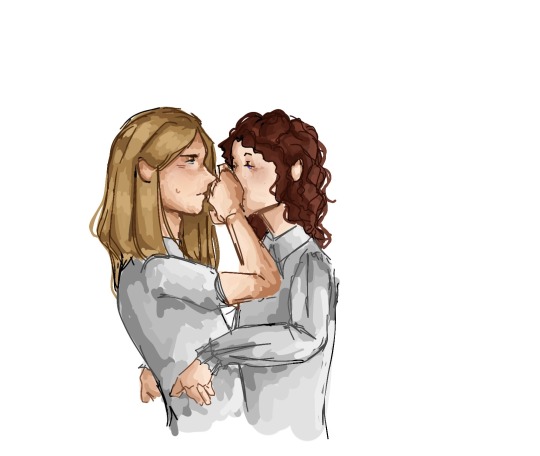
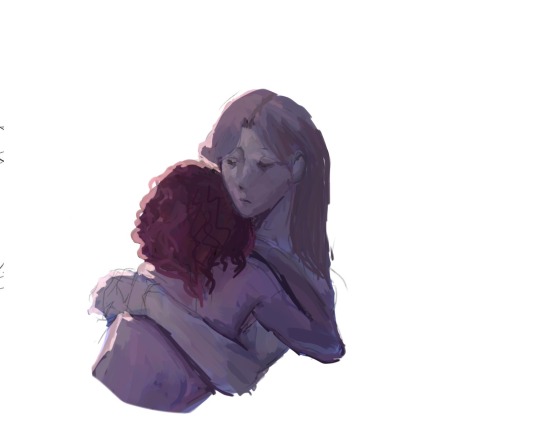
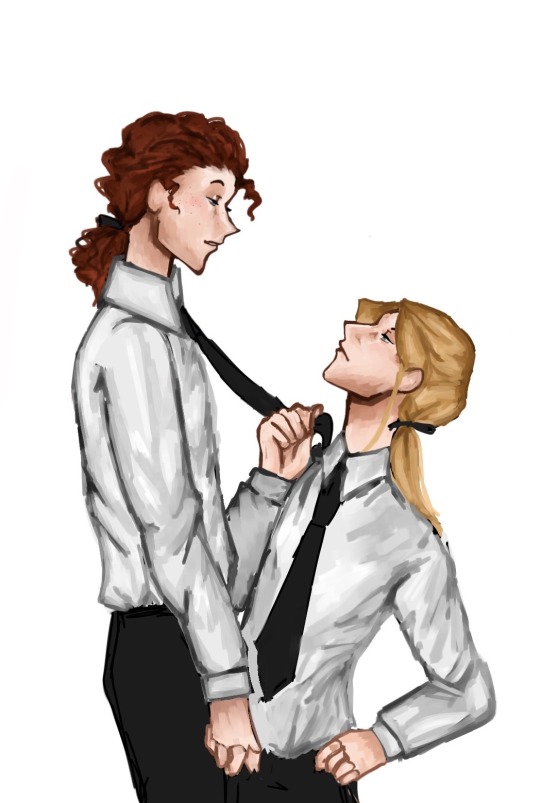
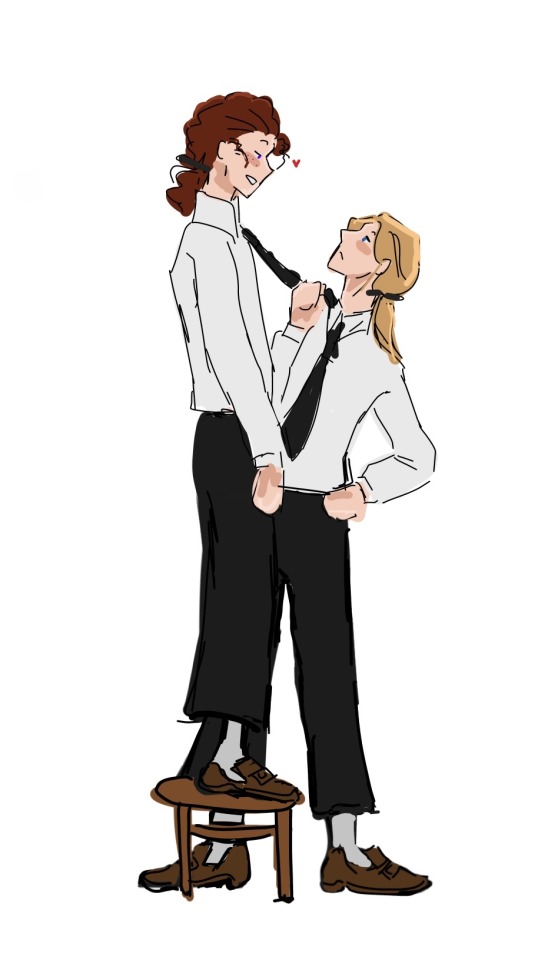
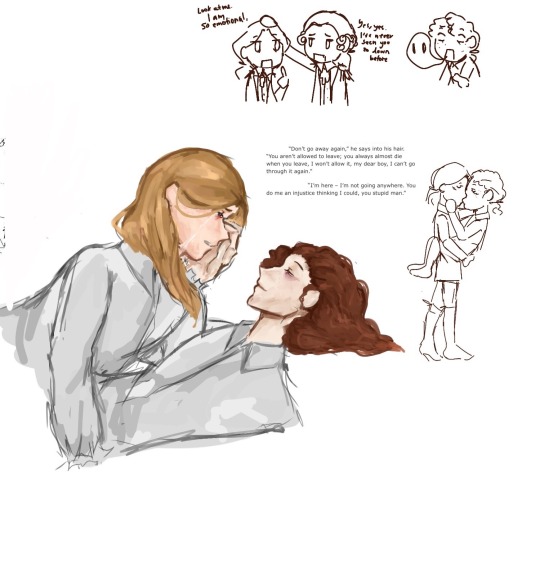
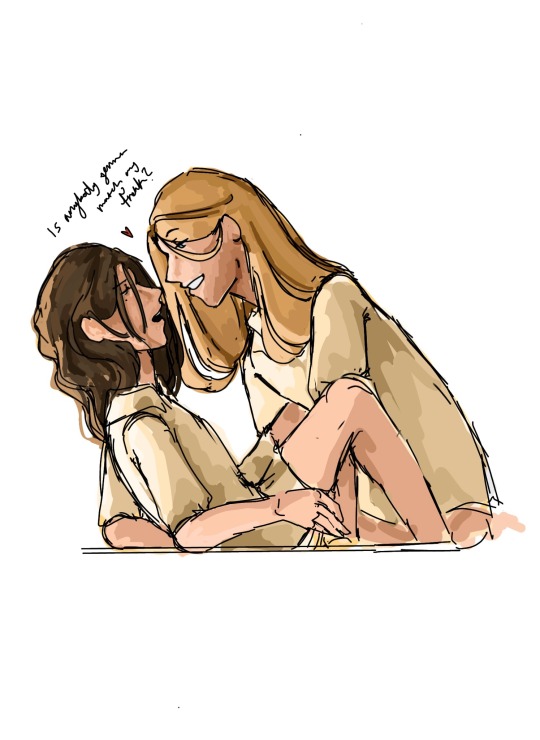


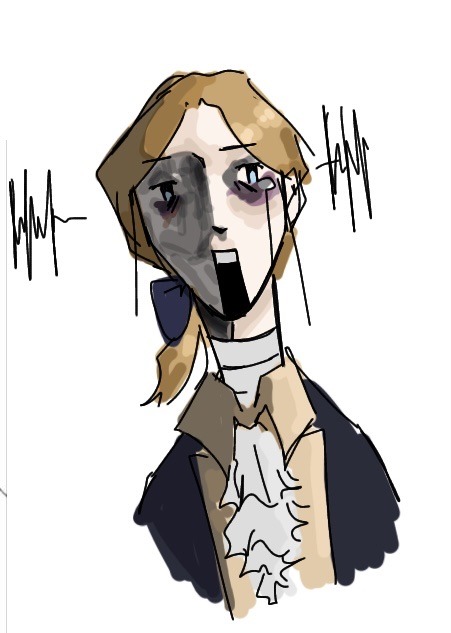
#amrev#historical lams#lams#john laurens#historical john laurens#alexander hamilton#historical alexander hamilton#washingtonaides#richard kidder meade#robert hanson harrison#james mchenry#jemmy laurens#francis kinloch#laureloch#these arts are kind of old too oops
107 notes
·
View notes
Text

Jemmy running off again. (He's so done)
#john laurens#my art#historical john laurens#laurens siblings#james (jemmy)#mary (polly)#he can't catch a break
32 notes
·
View notes
Text

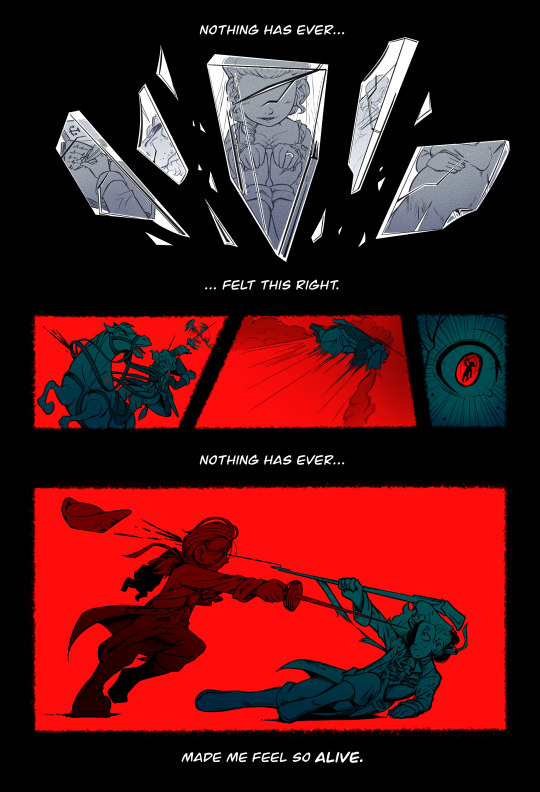
Sorry for the inactivity but Merited Partiality by @clear-as-starlight has me on a CHOKEHOLD yet again. I’ve known for a while that I wanted to draw something based on the mesmerising battle scenes but I don’t have much experience drawing comics OR action scenes OR horses OR 18th century weapons so getting this done was a JOURNEY lkjhghhgfgh— but that is how you learn, by being overly ambitious and starting out mediocre! ^^
This one is loosely based on chapter 5 but I reworked some stuff so it was feasible with my current skill level. :p
#art#amrev#merited partiality#eye strain#cw blood#cw guns#cw violence#i’m not used to drawing that sort of thing I’m not sure how to tag this#do tell me if i’m missing tags!!#comic#john laurens#martha manning#makes a cameo lol#as well as jemmy and kinloch but they��re too small to get tagged
64 notes
·
View notes
Text
Summary Day 2 at Land Con Paris (part 2)
via [Live] blog rostercon.com
note: Disclaimer: This live is automatically translated from the French version by Deepl. Translation errors may be present in the content. Une version française du live est disponible ici.
Who wants their group photo with the cast of Outlander?


Diarmaid Murtagh takes to the stage for the first panel of the afternoon

Did Diarmaid know the Outlander universe before he was cast? Between the first and second auditions, he watched the whole series, and between the second and third, he read all the books. So, in three weeks, he had read and seen everything about Outlander.
Diarmaid was particularly touched by Jemmy’s kidnapping, being a father himself. He adds that the moment when they are all together again also touched him deeply.
Would he like to go to the past or the future if he could travel through time? Diarmaid answers that he’d like to go to the past, and that his answer is probably going to be cliché, but he’d like to discover the Roman Empire.
Diarmaid recalls his first experience of shooting a feature film, with George Clooney in The Monuments Men. He thanks him for giving him the opportunity, and says he was a true gentleman. He adds that for him, George Clooney will always be « Mr. Director ».

Photos or selfies? Make your choice at Land Con 7










Time for Tim Downie's panel at Land Con 7

Tim Downie says his book will hit bookstores at Christmas 2026. He says it will be the perfect Christmas gift.
Tim Downie talks about the making of Transformers. Even though it’s an American film, it was shot in England, so much of the technical crew was English, while the heads of each department were American. He points out that Americans like to work fast and constantly remind us that they want to make the best film in the world. In contrast, when you’re working with an English crew, it’s much calmer: they’ll constantly ask you if everything’s going well, remind you that you’ve got time to do your scenes, and humorously add that they won’t hesitate to offer you tea.
Tim Downie says he’s a big fan of French culture, both cinema and literature. He jokes that the English are beginning to envy the French in one respect: our ability to strike.

While waiting for the group panel, Outlander fans learn traditional dances

Photos continue at The Land Con 7




Let's go for new duo photos





The cast of Outlander reunites on the Land Con 7 stage for the unmissable group panel.

One word to describe season 8? Words include sad, secret, dramatic, tears and exciting. Lauren jokes that everyone dies in season 8. Chris says he doesn’t know what to say as he’s not in season 8… or maybe he is, he adds, laughing.
If Lauren could play any other character, she’d opt for Geillis because he’s a mysterious character who can travel through time. She adds that Marsali and Fergus are among the only people who don’t travel in time and don’t know the secret of time travel.
Lauren says that one of her favorite filming locations is South Africa. In particular, they had to shoot on a beach and were lucky enough to be accompanied during the three-hour shoot by dolphins.

Autographs are in the air at Land Con 7


18 notes
·
View notes
Note
Oh, I'm after reading some letters you recommended me to read from Henry Laurens Papers! Thanks to this reading his bio is much better because I actually know how MUCH pressure Henry Laurens put on his oldest son.
John was constantly reminded about Virtue and poor boy was so scared of losing his father acceptance, he letters to him are so heartbreaking and you can feel how unhappy he was with some choices to make his father HAPPY.
I'd be very interested in what specifically you found heartbreaking, and which choices you're referring to, if you'd like to share!
In either case, I want to encourage you to resist a one-sided interpretation of letters like that and keep the broader context in mind.
Yes, Henry was a strict father – but he was not vastly more strict than others at the time. As a single parent, he had the duty of ensuring his children would be set up for success in the world that they lived in. The things that he encouraged John to do – live frugally, choose a financially viable career, build a positive public reputation, practice the virtues and behaviours of a gentleman, prioritise his family – were very much in John's interest, and importantly, John aspired to many of those things too.
Henry's advice and directions lined up with societal expectations for young men at their time. You can certainly make the case that he held John to a higher standard than other sons in their orbit, but he also gave John a lot of freedom to make his own choices – such as in his education and his career – and trusted him to make those decisions for Harry and Jemmy too. Again, whether it was entirely fair to give him that degree of responsibility is something we can discuss, but we also shouldn't ignore that John was largely equal to the challenges, and he had support as well (financially from his father, and more generally from his uncle and aunt, the Mannings, and other friends of the Laurens family).
The other thing to remember is that, from 1776 onwards, Henry believed there was a very real chance that he would be killed for taking part in the American rebellion, and his entire fortune lost – so it would be up to John to play a pivotal role in supporting his family financially and societally. Was it unfair? Probably yes. Was it their reality at the time, despite whatever Henry or John may have wanted? Also yes. In either case, John made his own decision and returned to America against Henry's wishes, and Henry supported his choice, even though he disagreed with it.
I'm not trying to say that Henry was a perfect father; like any parent, he had his own biases, ideas about proper conduct, "old-fashioned" notions, and – because he was a product of his society's norms – expected his children to obey his instructions (at least before they came of age). At the same time, he encouraged John to make the most consequential decisions for himself. I don't think Henry would have been "happy" if John had made himself entirely miserable for the sake of gratifying him; equally, Henry would not have been a good father for his time if he'd just let John do whatever he wanted, and neglected to give him a framework of virtues and morals to live by. We need to keep in mind which standards we are judging a set of actions by.
27 notes
·
View notes
Text
FUCK EVERUTHING EDEN WING IS JEMMY (JOHN LAURENS' brother) IF AMREV WAS IN ANOTHER UNIVERSE 22ND CENTURY I MEAN LOOK AT THEIR AGES AND IT LINES UP AND OMG
NO ONE WILL UNDERSTAND BOTH FANDOMS AND GET THIS POST BUT ME
WHY
8 notes
·
View notes
Text
Maniac Cop is a 1988 American action slasher film directed by William Lustig, written by Larry Cohen, and starring Tom Atkins, Bruce Campbell, Laurene Landon, Richard Roundtree, William Smith, Robert Z'Dar, and Sheree North. Z'Dar plays the title character, a murderous ex-police officer returned from the dead, and seeks revenge on the people who wronged him.
Plot:
In New York City, a waitress on her way home is assaulted by two muggers and seeks aid from a police officer, who breaks her neck. Over the next two nights, this "Maniac Cop" commits more murders, prompting Lieutenant McCrae, who was told by his superiors to suppress eyewitness accounts that the killer was wearing a police uniform, to pass on information to a journalist, in an attempt to protect civilians. This causes panic and dissent among the city, and results in innocent patrolmen either being shot to death or avoided on the streets by people afraid of them being the Maniac Cop.
Ellen Forrest, suspecting that her husband Jack may be the Maniac Cop, follows him to a motel and catches him in bed with fellow officer Theresa Mallory. Distraught, Ellen runs out of the room, and is slain by the killer.
In the meantime, Master Hanuš looks for sculptors and carvers for the Astronomical Clock statues. He catches a glimpse of Ellen, and is interested with her natural woodcarving talent. Matthew, being the target of ridicule by other students because of his poverty, studies with Master Hanuš, too. He has gained his teacher's trust, and oversees the plans of the Astronomical Clock. Since Matthew has nowhere to sleep, he finds the Faust House in Prague, already abandoned at the time.
Thanks to his classmates' frequent ridicule, he succumbs to the lure and then picks up a grey tolar in Faust's house to pay for his classmates' drinks and fit in with his peers. However, they deceive him and destroy the plans to the Astronomical Clock while they are unguarded. The unsuspecting Matthew gives the ruined plans back to Master Hanuš. The Prague councilors discover the damaged plans, and demand punishment of the problem. Matthew is placed in a pillory for one day. Because he never knows what he did wrong, he plans to take revenge on Master Hanuš. When Master Hanuš and Jemmy complete the Astronomical Clock, they get no respect or recognition.
Mallory hides out in McCrae's apartment while he investigates Sally Noland, the only person Mallory told about her affair. McCrae follows Noland to a warehouse, where she meets with the Maniac Cop and refers to him as "Matt". Returning to police headquarters, McCrae discovers files on Matthew Cordell, an officer who was unjustly imprisoned in Sing Sing for police brutality and closing in on corruption in city hall. He was mutilated and killed in a shower room in Sing Sing by other inmates, whom he helped incarcerate.
When McCrae and Mallory visit Jack, they tell him they think Cordell is the real killer and plan to visit the chief medical examiner at Sing Sing. McCrae leaves to go to the clerical room, and he is attacked by Sally, who is convinced that Cordell is going to turn on her. After finding an officer hanging from the ceiling, Sally is beaten to death by Cordell. Hearing the commotion, Jack and Mallory leave the interrogation room and find the corpses of numerous officers strewn about the halls of the building. Mallory goes to McCrae's car while Jack searches for Cordell, who disappears after throwing McCrae out a window, killing him. Jack, who looks like the one responsible for the carnage to responding officers, flees with Mallory.
The two go to see Sing Sing's medical examiner, who admits that while he was preparing to autopsy Cordell, the officer showed faint signs of life. The examiner secretly released Cordell into Sally's care, convinced he was completely brain dead. During the 50th annual Saint Patrick's Day parade, Jack waits outside as Mallory warns Commissioner Pike and Captain Ripley about Cordell, but the two refuse to believe her and have her arrested. Cordell appears and fatally stabs Pike and Ripley, then targets Mallory, knifing the policeman left to guard her. Mallory escapes through a window, while Jack is arrested and placed in a van, which Cordell hijacks.
Mallory and another officer chase the van, which Cordell takes to his warehouse hideout. Cordell attacks Mallory and Jack, kills the other officer, and tries to escape in the van when backup arrives. Jack clings to the side of the van and fights for control of it, causing Cordell to drive into a suspended pipe, which impales him. Cordell loses control of the vehicle, which crashes into the river, and sinks. Afterwards, the van is fished out; as it is searched, Cordell's hand emerges from the water.
Cordell writes a letter to Prague councilors explaining to them that Hanuš is a traitor. The mayor entrusts the executioner of Mydlář to cut out Hanuš's eyes. Hanuš wants to take revenge for this violence, and ruins his own astronomical clock by sabotaging the gears. Jemmy, as his assistant, is commissioned to fix the astronomical clock under Katie's threat being executed if he fails to do so in time. Jemmy fixes the astronomical clock at the last minute but arrives at the gallows too late, and Katie has been hanged already.
Later in the extended version, the mayor, confident that Katie is dead, relaxes in his office. After the mayor's assistant leaves the office, Katie silently appears from behind the curtain and kills the mayor as revenge for framing her.
0 notes
Note
Do eleborate
After Henry decided to take his three boys, Harry, Laurens, and Jemmy to Europe for their education, Jemmy seems to have caught small pox. After recovering he reportedly gained some noticable weight reported in a letter from Henry Laurens to Peter Nephew, [December 20, 1771];
My Sons, thank God, are very well. I wish this may find you and your family as well, and that you may long continue so. Your Acquaintance Jemmy is now scribbling by me. He has pass'd safely through the Small Pox and is now as fat as a little Pig. He desires me to give his best Compliments to Mr. & Mrs. Nephew, and thank them for their kindness to him when he was in Distress.
Laurens, Henry. The papers of Henry Laurens. United States, University of South Carolina Press, 1968.
(Italics are mine)
#After calling Laurens a monkey Henry certainly had some ‘interesting’ nicknames for his kids#amrev#american history#henry laurens#jemmy laurens#laukids#laurens siblings#laurens family#history#letters#queries#maip macrothorax#cicero's history lessons
32 notes
·
View notes
Text

"And then I get sick and throw up and there's another memory that gets stuck
Inside the walls of my skull waiting for its turn to talk
And it may be a few years, but you can bet it's there, waiting still
For me to be left alone in a room with the things that l've done"
#amrev#historical john laurens#jemmy laurens#historical jemmy laurens#john laurens#my art#my artwork#historical#big bro john we love him
46 notes
·
View notes
Text

when you are near me i feel okay
(some jemmy and john soft doodles for the soul :")
#john laurens#historical john laurens#james laurens#jemmy laurens#laurens siblings#laurens family#laukids#my art#they have enough pain on their own so only small precious moments from jemmys short life from now on (+ john being a proud older brother)#hope u enjoy them <3
167 notes
·
View notes
Text
The Laurenses for @thereallvrb0y :)
Alright buckle up bc it's going to be a long one. I'm gonna put a read more in a second, but this post includes Martha Manning Laurens, all the children of Henry and Eleanor Laurens, and Henry Laurens. My sources for all of these includes Gregory D. Massey's John Laurens and the American Revolution, and I will add more if I use more at the end!
Martha Manning Laurens
Martha Manning was born in St. Kitts, and was baptized on January 8, 1757. Her family moved to England by 1769. Her family was very high class, and she would have been very well educated in etiquette and would have had high expectations for her. Her father worked with Henry Laurens, and she possibly met his son, John, in October 1771.
They definitely met by the end of 1774 when he returned to London. John made frequent visits to the Manning home. Mr. Manning served as an unofficial guardian to John while his father was away.
"I am annoyed that you have for so long neglected to write to Mademoiselle Manning, you should have done so right away. She's a very nice young lady; I have the opportunity to see her often at her Father's, and the entire Family is very kind to me." -John Laurens to his sister.
John talked about Martha very politely, and with very little romantic feeling. They got along well as friends, then had a one-night stand where Martha got pregnant, forcing them into a marriage to preserve both families' honor. Around the time John and Martha had to have slept together correlates with when Laurens and Francis Kinloch ended their relationship, which was likely to have been ~homosexual in nature~ as the kids say
"Pity has obliged me to marry. But a Consideration of the Duty which I owe to my Country made me choose a Clandestine Celebration lest the Father should insist upon my Stay in this Country as a Condition of the Marriage. The Matter has proceeded too far to be longer concealed and I have this morning disclosed the Affair to Mr Manning in plain terms, reserv[ing] to myself a Right of fulfilling the more important Engagements to my Country." -John Laurens
They were married on October 26, 1776. She had a difficult birth in late January 1777, after John had already left to join the war in America.
Their daughter was ill for the beginning of her life. She suffered "much pain & misery by a swelling in her Hip, & Thigh." A surgeon "cut out a great piece of flesh" from her hip to assist in mobility. Martha and the baby moved to the country "for the change of air", which was considered the best remedy in the 18th century.
She seems to have written to John regularly, but rarely received a response, but that wasn't personal; Laurens was notorious for never responding to letters. She often sent the letters through his father, who tried to get John to respond more often.
When Henry Laurens was imprisoned in the Tower of London, she took her daughter to visit him.
She learned that John was in France in 1781, and attempted to visit him, but he had already left. She died in Lisle, France in October/November, 1781.
TW for the rest of this, there is a lot of death when it comes to the Laurens siblings, so it might be a bit upsetting, especially when it comes to Jemmy.
Henry Laurens Jr. the first
Henry Laurens Jr. was born in 1753. He was close with John at a young age. He died in August 1758. Yeah, off to a great start.
Eleanor "Nelly"
Nelly was born in 1755. She was also close with John at a young age. She died in April 1764. It's only uphill from here folks.
Martha "Patsy"
Martha was born in 1759, and almost died of smallpox as an infant. She was almost buried actually, but the doctors determined she was alive.
"Patsy is forward in her learning... she reads well & begins to write prettily, is not dull in the french Grammar, & plays a little on the Harpsichord, but better than all, she handles her needles in all the useful branches & some of the most refined parts of Womens work & promises me to learn to make minced Pies & to dress a Beef Steak."
After their mother's death, she was tutored by her older brother, John.
"I feel an irrestible pleasure result from seeing him act the part of a kind & able friend & Brother to a Sister of 11 Years Old who is now advancing fast in French & is as much a Mistress of English Grammar as any Girl of her age through his assistance. Besides this he brings on a little Harry & Jamie in their learning too."
While her brothers and father were in Europe, she stayed with her Uncle James and Aunt Mary, "despite her obvious talents and potential." John told Henry that he "promised to give Patsy an Opportunity of Learning to Draw", which was eventually arranged.
She traveled to join her family in 1775 in London. She met John on July 12. John decided to test her courage to see if "her mind" was "superior to the common accidents of life, and the groundless fears of some of her sex." He arranged for her carriage to be driven at a high speed on a bumpy road and examined her reaction for any "womanish fears." And yay!! She passed his sexist test!!! ("...he had found her the same Spartan girl he had left her.") Then she moved to Bristol.
John really loved her, after the sexist test ofc (you can't like your sister if she doesn't pass the sexist test). She consistently "demonstrated intellectual curiosity". Henry encouraged her, but reminded her that she was a woman: "When you are measuring the surface of this world, remember you are to act a part on it, and think of a plumb pudding and other domestic duties." Shut the hell up, Henry.
She was also very religious, as Henry was, and John wasn't. John even made fun of her when he requested a letter "in the first vacancy from the important Duties, of commanding, putting on, and Displaying the Sublime Inventions of the Millenenil Tribe; I think I may promise myself You will not remain Silent, now. My rashness in hinting at the Distribution of your Time will draw a spirited Harangue, I'll engage you for it."
Now I want to say something really quick about John. I have been reading 18th century language every day for a while, and I can understand it about 75% of the time, but I can barely every understand whatever tf John is saying. I am stupid, I'll admit that, but compared to Hamilton and he is so difficult to understand. It's the rich boy vibes.
John was also worried about her speech, specifically that she wouldn't acquire "that Grace of Deportment which gives Splendour to every Action." She apparently had an "undecided Tone" when talking, and John advised her to develop a polite speaking voice. He would know because he has ideal tone. He also convinced her to take long walks. Someone make him stop talking.
She stopped mentioning John in her prayers by 1782 before he died. ("...resolved to retire for that purpose of praying for her brother... some sudden call or other unexpected event interposed to prevent her from doing so.")
After John's death later that year (spoiler alert), she was torn between going to her grieving father or her sick uncle, to which Henry said: "Take care of my Dear Brother, let me rather suffer than him."
She ignored him and joined Henry in Bath anyway. She was shocked at his appearance.
"I can perceive his heart is bowed down, & he does indeed stand in need of some kind friend to soothe his Sorrows, I wish I were more adequate to the task, but notwithstanding my sincere desire to be his Comforter, my own heart is so heavy, that it is sometimes as much as I can do to appear tolerably cheerful. You know how greatly I was affected by the late melancholy Event in our family. Time, instead of alleviating this Grief, makes me every day more and more feel my loss."
She stayed in Bath in 1784, and assumed the responsibility of her younger sister and niece's education. She returned to Charleston on May 11, 1785, and married David Ramsay in 1787. She continued to act as Fanny Laurens' guardian. She also read Benjamin Rush's Thoughts upon Female Education.
She left Mepkin before her father was cremated. After Fanny eloped and her husband's finances took a dip, Patsy was sent into an emotional crisis. Yet, she still strived to instill virtue in her eight children. She died in 1811.
James "Jemmy/Jamie"
James Laurens, who I will call Jemmy, was born in November 1765, right after the Laurens estate was attacked by a patriot mob. Woo!
"...a very fine Boy, who seems as if he had not been half so much frighted by smutty faces, turned Coats, Cutlasses, & Bludgeons as his Mother was."
"...a wild, lively, sensible, good natur'd fellow..."
"...healthy and clever & seems to be a duplicate of his Elder Brother [John]."
Henry decided to take Jemmy to London along with John and Harry, and placed him at Winson Green, a school administered by Reverend William Howell. Jemmy showed significant improvement in his education. ("...there does not appear to be a want of Talents in any of you.")
The headmaster at the school then had a stroke, and after, John concluded that Jemmy was not getting proper attention and removed him to look for private schools in London. He narrowed it down to schools at Greenwich and Brompton, and decided to place Jemmy at Greenwich on September 4th because William Manning had leverage with the headmaster.
(TW for a death, skip to Harry)
As John was going to inform his father that he had found a school for Jemmy, he stopped at the Manning residence, where William Manning informed him that Jemmy had been seriously injured. He had attempted to jump "across from a Footing within the Iron rails" to John's window and fell and fractured his skull. John rushed home, but nothing could be done for Jemmy.
"At some Intervals he had his Senses, so far as to be able to answer single Questions, to beckon to me, and to form his Lips to kiss me, but for the most part he was delirious, and frequently unable to articulate. Puking, Convulsions never very violent, and latterly so gentle as scarcely to be perceived, or deserve the Name, ensued, and Nature yielded." -John Laurens, 1775
Henry "Harry" Jr. the second
Harry was born on August 25, 1763 at Mepkin Plantation, South Carolina. According to his father, he was "a little thick Headed, loves Marbles, Tops and Tumbling much more than his Books."
Henry sent Harry in early 1771 to London to be taught by Richard Clarke. He was looked after by George Appleby. Henry stayed behind because "his Constitution is not strong enough to bear the extreme Heats and Changes of this Climate." John stayed behind with his father. ("I detain him at his own particular desire for a month or two longer, in hopes of going with him. He says, if Harry goes first, he is sure that I will go after him.")
His father and brothers joined him in London on October 21. He was "in very good health, grown tall & improved in his Book."
Here's something... interesting, that happened. So Richard Clarke allowed his "Vagabond Brother" to live in his house. This brother "wantonly and maliciously thrust" a candle at Harry's face, which burned Harry's cheek, but if "an Eye had been struck, it must have perished."
Henry talked to John about Clarke, and he said, "Mr. Clarke does not keep a proper Discipline," and the boys of "duller Genius must remain Slack or go backward." Henry checked Harry's books and he had not written in five weeks. Clarke planned to move his school to Chinkford in Essex County in April and apparently this solved the problem I guess.
Harry and John left for Geneva with Henry on May 30, 1772 to see if they could go to school there (Henry really hated London). They traveled to France first.
"The Young Folks have been highly entertained... John has feasted on several Pieces of fine Painting, some of Carving, and a few in Sculpture. Harry has learn'd to string a few Sentences cleverly together in French and serves me sometimes for an Interpreter."
Henry approved of Geneva, and left Harry and John there to get edumacated, and they stayed at the home of Jean-Antoine Chais.
"They will have as many kind Friends in Geneve as they had in Charles Town, and more friendly Attention paid to them in all Respects than we could hope for in a Kingdom overwhelm'd by Luxury and Vice [England lol]... The Anxiety therefore which Distance of Place might have occasioned, must be greatly alleviated, if not wholly remov'd."
Henry showed a surprising amount of promise. John wrote that Harry "discovers more Talents than some folks were aware of." Massey writes in his biography of John that, "In many respects, Harry assumed the role of the typical middle child, overshadowed by both of his brothers... Harry never seemed to win his father's full affection."
As he was was watched over by John when they returned to London, John instructed him to avoid arguments about the war and to send duplicates of his letters to their father. ("Your Brother probably meant to mark you down for a Merchant by encouraging you to Send duplicates of you late Letters... a precaution which I could never persuade the Lawyer [John] to take." -Henry)
Harry returned to America in June 1784 with Henry, and married Eliza Rutledge in 1792. At one point, David Ramsay owed him $97,204.
He died on May, 27, 1821, and left behind 459 slaves and a $142, 510 estate. He gave his son, John Ball, the box John Laurens had gotten from King Louis XVI.
Mary "Polly" Eleanor
Polly was born on April 26, 1770, and her mother died because of the effects of her birth. Along with her older sister, her aunt and uncle took care of her while The Lads were in London. She traveled to join The Lads in 1775, and showed "considerable intellectual promise". However, according to Henry, her aunt was too lax with her. She also moved to Bristol.
She was always described as vivacious, "skipping and galloping about the Room in spite of all their Efforts to restrain her."
"Polly thinks the Restraint incident to her Sex, very mortifying, and asked one day with as much Gravity as Innocence, if they would not let her wear Breeches & become a Boy. She envied Harry his freedom very much and would wish to be upo the same footing with him. When she was told that this Change would not be effectual, she proposed what she thought infallibly answer the purpose, to be re-christen'd, and have a male Name... a narrative of the history of Joan of Arc may cure the little Maid's ambition for Breeches."
While some interpret the above as gender dysphoria, it is more likely that she thought the preference for her brothers was unfair, since she never seemed to think much else of being a girl besides this.
She stayed in Bath in 1784, and returned to Charleston on May 11, 1785. She married Charles Pinckney in April 1788 (though her father did not approve), then died from complications in childbirth in 1794.
Henry Laurens
Henry was born in Charleston in 1724, with an extensive genealogy of rich people. He was educated in Charleston, and worked at a counting-house. He went to England to for his education, and trained under a British merchant. (TW for discussions of slavery) He returned to South Carolina in 1747, and opened a mercantile business, and traded rice, indigo, deerskins, tar, pitch, silver, gold, and, of course, people.
In 1755, he wrote to another business describing what slaveholders looked for in their enslaved people.
"...very likely healthy People, Two thirds at least Men from 18-25 Years old, the other young Women from 14-18 the cost not to exceed Twenty five Pounds Sterling per head... There must not be a Callabar [sic] amongst them. Gold Coast and Gambias are best, next to them the Winward Coast are prefer'd to Angolas. We would not choose them sent in the Hurricane Season but rather to come in the months of October or November. Pray observe that our people like tall Slaves best for our business and strong withall. Such as small, meager or other ways ordinary won't sell better here than with you. The difference in price between Men and Women is never less than £ 3 Sterling per head, sometimes £ 6."
Despite trading black people and enslaving them for his entire life, he told John "I abhor slavery. I was born in a country where slavery had been established by British kings and parliaments...I am not the man who enslaved them..." So yeah, he's a hypocrite, and put the responsibility on other men, who were no less responsible, instead of not being an asshole! Oh and he never spoke publicly against slavery, so it really didn't matter that much to him.
He married Eleanor Ball on June 25, 1750, which is weird because marriages in the 18th century were most often in the winter, but whatever.
Henry began his political career in 1757 as a member of the Commons of House of Assembly, and remained there until the Revolution started.
He held the rank of Lieutenant Colonel in the South Carolina Militia during the French and Indian War. His business contributed 7,000 pounds to the war against the Cherokee tribe. He also kept a diary during this time, here. In 1758, he was appointed to oversee Charleston's defenses, and then in 1761, he went to negotiate a peace treaty with the Cherokee.
In 1762, Henry purchased his plantation, Mepkin. He continued to buy land and people, and eventually had 20,000 acres, and by 1766, had 227 enslaved people working for him.
He was appointed to the Kings Council in Carolina in 1764 and in 1768. This was a bad look for him, since the American Revolution was brewing. In October 1765, a mob of the Sons of Liberty stormed the Laurens' home, thinking that some other dude was there. Thankfully, no harm was done to the Laurenses, but it was pretty traumatic.
Despite this, Henry wasn't a Tory, and got into a lot of disputes with British authority. He was involved in a controversy from 1767 to 1769 over some of his ships that had been confiscated. Massey explained this whole thing in his book, but it was stupid. All you need to know really is that Henry won and decided he didn't like British people, which later led him to sign the Boston Port Bill Petition in opposition to the Tea Act.
Eleanor died in the spring of 1770, which really affected Henry for the rest of his life. He promised not to remarry and to prioritize his children's wellbeing and education no matter what.
Henry returned to Charleston in November, 1774, and was appointed the next year to the Safety Council as President. Then he held like five other positions but whatever.
He represented South Carolina in the Continental congress from July 1777 to 1779, and became the President after Hancock resigned in 77. He wasn't able to attend congress for two weeks in December of that year because of his gout, and conducted his business from his bed. He tried to quit but they were like nah. He had to be carried into Congress at one point too so... Conclusion: Congress doesn't give a fuck about you <3
He tried to quit again in March 1778, but no one cared. Then his other delegate fucking died and he was the only South Carolina delegate left so he stayed. Then he was elected to another thing and then he was elected as a minister to the Netherlands on November 1, 1779. Conclusion: Congress needs to get reported to HR.
He was redirected to England on his way to the Netherlands by the cops, and he was charged with high treason. He was imprisoned in the Tower of London, and was the only American to be held prisoner there, so that's hot, I guess.
On June 14th, Benjamin Franklin was allowed to exchange General Burgoyne for Laurens, and he was released on April 27, 1782!!-- but not really. He wasn't a prisoner of war, so he couldn't be traded until they captured General Cornwallis, so that sucked, but he got released, so yas. He was absolutely crushed by the death of his son, John, later that year, so 1782 was not great for him.
He voted for the Constitution on May 23, 1788, and cast South Carolina's presidential vote for George Washington in 1789, then officially retired from all politics.
He died of illness, (I think a heartattack was the actual cause of death), and because of his daughter being nearly buried alive, he had a big fear of that happening to him, so he was cremated after he died on December 8, 1792, and was buried next to John.
Sources:
#john laurens#henry laurens#harry laurens#jemmy laurens#marth manning laurens#martha laurens ramsay#mary eleanor laurens#eleanor laurens#historical john laurens#amrev#amrev history#american history#there's a whole lot more information on henry laurens but i cant fit all the small details in here without going insane lol#do it for richie 💪
69 notes
·
View notes
Text
#look at what cicero and del have done to me 😭😭😭#amrev#john laurens#harry laurens#jemmy laurens#patsy laurens#polly laurens#philip hamilton#angelica hamilton#james alexander hamilton#alexander hamilton jr.#john church hamilton#eliza hamilton holly#william s. hamilton#philip hamilton ii#polls
10 notes
·
View notes
Text
I gently conveyed your chiding message to Sister patsy, She Smiled & received it as a mark of your Love for her_ Your Sister will forward this to you & when you meet will further answer for herSelf_ You will be highly pleased with your little Sister Polly, She reads to a degree of perfection which will Surprize you, but poor little thing She has to pass under the Surgeon's hands for the Small Pox immediately upon her arrival.
Henry Laurens to Jemmy Laurens, 24 May 1775
Henry's daughters, Martha and Mary Eleanor, were preparing to depart for England with their uncle and aunt.
Jemmy himself had been innoculated shortly after his arrival in England in October 1771 and suffered through a few uncomfortable days as the symptoms took hold.
16 notes
·
View notes
Text

Tired big brother. At least Jemmy agreed to finish his Latin exercises without putting up a fight.
Click for full quality!
Sketch below the cut because I like how it came out too.

90 notes
·
View notes
Text

jemmy laurens death day :(
#not the best role model#i was reminded of this like an hour ago ty browife#historical john laurens#john laurens#jemmy laurens#laurens family
361 notes
·
View notes
Text
"Harry is in a very fair way at Westminster School, under such Regulation as to be in no danger of losing his French and Arithmetic, there will be no difficulty in determining with respect to Jemmy's future proceeding"
From John Laurens to James Laurens, 1774, September 15.
John just being a responsible big brother about his younger brothers' education.
I wonder if the clarification about Harry not losing french nor arithmetic is about those were hard courses for him (or courses he used to lose). Anyway, it's always nice to see he had John at his back looking after his education.
And, this instance makes worst the death of Jemmy, being the younger brother and someone John already had plans on, in this kind of instances you realize John wasn't just his brother, he was a kinder and more gentile paternal figure for them than their actual father.
#it wasn't your fault Harry#it was from the educative system and the high standards of society that wouldn't let a kid be a kid#john laurens#historical john laurens#american history#laurens family#quote#1774#jemmy laurens#harry laurens
12 notes
·
View notes